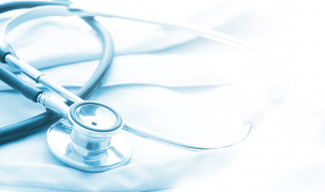
Johns Hopkins UniversityEst. 1876
America’s First Research University
On Becoming a Healer: The Journey from Patient Care to Caring about Your Patients

I remember driving along a lovely country road to class in July 1989, the sun shining on my first day in medical school, and thinking “How bad can this be?” I had spent years preparing for the moment. Within a few days, however, I was anxious and overwhelmed. As the months passed I learned to function in academic survival mode, studying all the time and memorizing hundreds of answers from old tests so that I could regurgitate innumerable facts on countless exams. During the clinical years, we learned to “work patients up,” to “present them” on rounds, to do “scut-work” and to write exhaustive notes. That process seemed designed to turn me and my fellow students and, later, fellow residents, into efficient “task completers” rather than caring professionals.
After more than two decades as a medical school professor, I look at the way we treat medical students with dismay. For instance, I remember a first-year student who missed two days of class to be at the bedside of a parent who has just had a heart attack and was in the ICU. She had to provide written proof, per medical school policy, that she was telling the truth about why she had been absent. How might such demeaning treatment shape a future physician’s sense of self and how they, in turn, exercise authority while seeking to help others?
The effects of our culture reverberate all too often into patient care: Consider, for instance, what happened when a woman (“Ms. Garcia”) with kidney failure came back to the emergency room repeatedly because she had missed hemodialysis and was suffering complications. Each time, the doctors stabilized her with medications and dialysis – and then sent her home. They did so without asking her why she wasn’t taking care of herself. Finally, a medical student learned that she was caring for a chronically ill 10-year-old grandson and had to choose between taking him to his appointments or going to her dialysis clinic, at a different location. When that underlying problem was at last uncovered, a social worker arranged for Ms. Garcia to obtain dialysis at the same medical center where her grandson received his care. She never missed a session again. I share this example because it is emblematic of the lack of curiosity, absence of human engagement, and a too-narrow focus on disease management that, together, lead to poor care.

As long as our medical education system produces “task completers” rather than healers who consider the whole person, we will continue to provide medical services that look technically correct on paper but fall short of what patients need. And patients are not the only casualty of our current system; physicians are too. There is an epidemic of burnout in the medical profession, as practice is reduced to a litany of tasks with little interpersonal engagement. It doesn’t have to be that way. Imagine how much more meaningful it could feel to connect with Ms. Garcia, to ask her why she is struggling, to learn of her devotion to a grandson with chronic illness, and then to help her resolve her dilemma.
I decided to write On Becoming a Healer not just as an indictment of the prevailing approach to training and socializing physicians — although it certainly is that — but also as a companion guide for those who are trying to survive medical education as more than just technicians, but as caring professionals. My own survival was based on luck. I had an exceptional mentor, an experienced older family physician and educator, who became my sounding board and counselor along my journey. He served as a reality check, helping me to remember why I went into medicine, when everything around me seemed designed to make me forget. On Becoming a Healer offers stories and strategies for staying true to the values of a healer while being realistic about the expectations one needs to meet to survive both as a trainee, and as a doctor. Beyond just surviving, however, On Becoming a Healer aspires to help physicians thrive.
While the book is written to stand alone, and it includes questions for self-reflection at the end of each chapter, it is also intended to bring people together. I am eager to volunteer my time to facilitate those conversations, and have been setting up webinars for students, residents and more experienced physicians to foster dialogue. For those who are interested I can be reached at [email protected]
Order On Becoming a Healer: The Journey from Patient Care to Caring about Your Patients – published on April 7, 2020 – at the following link: https://jhupbooks.press.jhu.edu/title/becoming-healer
Saul J. Weiner, MD is a professor of medicine, pediatrics, and medical education at the University of Illinois at Chicago, the deputy director of the Veterans Health Administration's Center of Innovation for Complex Chronic Healthcare, and the cofounder of the Institute for Practice and Provider Performance Improvement (I3PI). He is the author of On Becoming a Healer: The Journey from Patient Care to Caring about Your Patients and the coauthor of Listening for What Matters: Avoiding Contextual Errors in Health Care.

